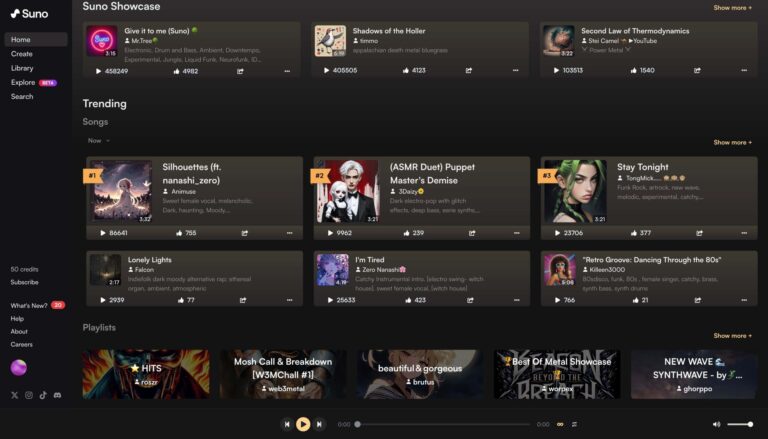ELEVENLABS AI VOICE SYNTHESIZER REVIEW 👀
ElevenLabs orchestrates a symphony of synthetic voices, transforming text into lifelike speech with uncanny precision. This platform doesn’t just speak; it emotes, localizes, and personalizes, pushing the boundaries of artificial vocalization.
BENEFICIAL FEATURES 💡
- Emotional Resonance Engine: Unlike robotic text-to-speech tools, ElevenLabs captures human-like intonation and emotion. Imagine an audiobook where the protagonist’s voice trembles with fear during a suspenseful scene, though this level of nuance might blur the line between artificial and authentic performance.
- Linguistic Chameleon: With support for 29 languages and 50 accents, it outperforms many rivals in versatility. A global e-learning platform could offer courses in learners’ native tongues without hiring multilingual voice actors, potentially democratizing education but risking loss of cultural nuances.
- Voice Doppelganger Creator: Allows voice cloning from short samples, a standout feature. A podcast host could create an AI version of their voice for sponsored content, maintaining brand consistency but raising ethical questions about voice ownership.
- Real-Time Vocal Analytics: Provides insights into voice usage patterns, unusual in the TTS space. A marketing team could optimize voice-based ads by analyzing which tones resonate best with their audience, though this data-driven approach might lead to homogenized vocal styles.
- Voice Marketplace Ecosystem: Uniquely allows users to monetize custom voices. While this could create new income streams for voice artists, it may also saturate the market with similar-sounding synthetic voices.
APPLICATIONS 🎯
- Multilingual Customer Service Virtuoso: A global tech support center could deploy AI voices in multiple languages, offering 24/7 assistance while maintaining a consistent brand voice.
- Personalized News Anchor: News apps could generate custom newscasts using AI voices tailored to individual preferences, potentially increasing engagement but raising concerns about information bubbles.
- Voice Actor Understudy: Film studios could use AI voices for preliminary dubbing or to complete projects when actors are unavailable, streamlining production but potentially impacting actors’ livelihoods.
- Accessibility Amplifier: Publishers could rapidly convert text-based content into audio formats, making information more accessible to visually impaired users or auditory learners.
- Brand Voice Curator: Companies could create unique, consistent voice identities for their brands across all audio touchpoints, from phone systems to commercial voiceovers.
WHO USES ELEVENLABS? 👥
- Global Content Creators: YouTubers and podcasters looking to expand their reach across language barriers.
- E-Learning Platforms: Educational technology companies seeking to offer courses in multiple languages efficiently.
- Publishing Houses: Book publishers exploring audio formats and multilingual releases.
- Marketing Agencies: Firms creating voice-based advertisements and content for diverse markets.
- Accessibility Advocates: Organizations working to make content more accessible to people with visual impairments or reading difficulties.
READY TO ORCHESTRATE YOUR AI VOICE ENSEMBLE? 🔥
Consider ElevenLabs’ potential to revolutionize how we create and consume audio content. While it offers unprecedented flexibility and efficiency in voice production, users must grapple with the ethical implications of synthetic voices that are increasingly indistinguishable from human ones. Could ElevenLabs be the key to breaking down language barriers and democratizing voice content, or does it risk further blurring the lines between authentic human expression and artificial mimicry in our digital soundscape?







